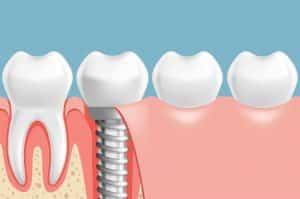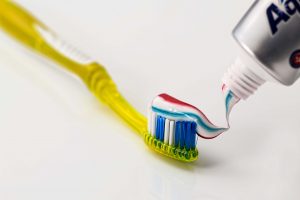While it is essential to care for your teeth, many individuals overlook the importance of caring for your gums. As part of a comprehensive oral hygiene routine taking care of gums is rather important. They’re the cornerstone of a healthy mouth. You’re putting yourself at risk for oral health problems if you don’t take care of your gums. Because your gums support your teeth, you should treat them with care and act swiftly if you see bleeding gums. In this article, we will give you information about bleeding gums and how to prevent them.
What Does It Mean If You Have Bleeding Gums?
Gum problems, such as bleeding gums, may indicate that your gums are not being properly cared for and require more attention. You shouldn’t be alarmed if your gums are bleeding. However, you should take steps to assist prevent the condition from progressing to a more severe stage. Individuals generally don’t take gingivitis and bleeding gums seriously because so many people have it.
Even though one out of every two Americans has some sort of gum disease, just about 3% seek professional help. According to the American Academy of Periodontology (AAP), the disparity between the high incidence of gum disease and low levels of professional treatment. It is due to a lack of knowledge of the impact periodontal disease has on general health. Periodontitis has been linked to various health issues including heart disease and diabetes in some studies. Therefore, it’s not something to take lightly.
What Causes Bleeding Gums?
Gum bleeding can be caused by a number of different things. Gums are irritated by plaque build-up and may become inflamed and bleed when you brush or chew specific foods in this early stage of gum disease. Poor oral hygiene is a common cause of gingivitis. Gingivitis may be prevented and treated at home by brushing twice a day and flossing after meals.
When plaque solidifies into tartar at the bottom of your teeth, it pushes your gums away from your teeth, allowing germs to thrive beneath the gum line. Periodontal disease is a severe condition that requires the attention of a trained dental hygienist. Bleeding gums can be caused by a variety of things, but they can also be a sign of something else.
Gingivitis (gum inflammation):
Gum bleeding is a sign of gingivitis. This common and mild form of gum disease is caused by a build-up of plaque along the gum line. If you have gingivitis, your gums may be painful, red, and swollen. Your teeth will bleed when you clean them.
Periodontitis:
Periodontal disease, also called periodontitis, is a long-term gum infection that, if left untreated, destroys the tissue and bone that protects the teeth. Your gums become inflamed and swollen as a result of periodontitis, causing them to separate from the roots of your teeth. If your gums bleed easily, it might be a sign of periodontal disease.
Diabetes:
Gums that are bleeding or swollen might be a sign of diabetes, whether type 1 or type 2. Your mouth is less effective at fighting germs when you have this condition. Therefore, you’re more prone to have infections like gum disease. Diabetes causes excessive blood sugar levels, which makes it difficult for your body to repair, making the gum disease worse.
Leukemia:
Gum bleeding is a sign of leukemia, which is a kind of cancer. Platelets in the blood help to keep bleeding at bay. Your platelet count is low if you have leukemia. This makes it hard to halt bleeding in numerous parts of the body, including your gums.
Hemophilia:
Gum bleeding or severe bleeding after a minor cut or dental procedure might be an indication of a condition like hemophilia. Because your blood does not clot correctly in this situation, you may experience bleeding gums.
Scurvy:
An excessive shortage of vitamin C in the body can induce scurvy, a disorder associated with poor nutrition. It will brittle it, resulting in anemia and skin bleeding. Gum bleeding is a symptom of scurvy.
What are the Treatments for Bleeding Gums?
Gingivitis may typically be managed at home by brushing and flossing properly. You may be concerned about bleeding gums while brushing. However,it’s still necessary to brush thoroughly using a small-headed soft-bristle toothbrush. Brush your teeth at least twice a day and floss at least once or in between meals. After a meal, chewing sugar-free chewing gum can assist to eliminate extra dirt or plaque from your teeth, preventing gingivitis.
Furthermore, tobacco usage can harm your gums and increase your chances of developing gum disease. Plaque bacteria can cause problems other than gingivitis, such as compromised tooth enamel. Plaque and tartar that can’t be eliminated at home will be removed by your dentist’s cleaning twice a year. This will maintain your mouth healthy and avoid bleeding gums. At least twice a year, you should visit Smile Team Turkey for a thorough cleaning and dental exam. This can help prevent gum disease from advancing to a more serious stage.
You can read our previous article at https://smileteamturkey.com/blog/gum-recession-symptoms-and-treatment/






